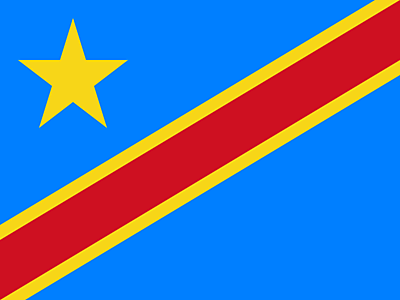Education System Failing Congolese Children
Posted by khethiwe qotyana on 20 March 2018, 16:10 SAST

Hubert Ilunga, an 18-year-old from Lubumbashi, wishes that he could have stayed in school. Instead, he dropped out of the education system when he was just seven and is now forced to work 12-hour days as a conductor on a bus for very little money.
“Today I am paying for the consequences of not studying,” he said. “I wanted to continue studying, but my parents had no money to support my primary education. I do not have a good job. I shout all day long. I wake up at six and finish work at nine.”
Despite these long hours, Ilunga says that he only earns 3000 Congolese francs (about 2.5 US dollars) per day.
“When I think of my life, I feel sorry, because if I had continued my studies I could have had a life other than this one,” he said. “I wonder whether I’ll ever be able to have a family. I'm scared even to get married because I would not wish for my children to be unable to study and to be forced into a life of suffering."
Nadine Mianda, 20, feels the same.
“The lack of study forces us to live as marginalised [citizens] because those who have money will always be superior to us,” she said. “Their children are studying and we'll always remain illiterate. The chances are not the same for one who has studied and who has not."
Mianda dropped out of school when she was ten because her parents could no longer afford the fees. She now works as a domestic helper in order to support herself.
“A lack of education hurts, but we try to adapt to the situation,” she added.
According to UNICEF, the United Nations child protection agency, 75 per cent of children of primary school age attend school. But at secondary school, the corresponding figure is just 32 per cent.
It is not just those that have been forced to give their education up that suffer. According to Daniel Kasongo, a psychologist, a lack of education has serious repercussions for Congolese society as a whole.
“Children who have not studied as they grow do not know what to do,” he said. “They grow up with hatred and they avenge themselves upon those that have succeeded more in life. A lack of education creates miserable people, who live in poverty and turn to crime in order to survive."
Kasongo adds that, since fighting crime is such a drain on resources, it would be more effective to tackle the root causes of the problem, which include a lack of education.
Georges Mutamba, an independent researcher, agrees, pointing out that a society that is not able to provide adequate schooling for all creates divisions and inequality that can store up problems for the future.
“Since education is not free and parents pay the teachers, those who have no means leave their children at home,” he said. “This creates discrimination since only children of rich parents can study, while poor children do not get a chance. Many end up on the streets since they didn’t go to school. It is up to the state to ensure the education of children.”
Alexis Takizala, a lawyer, points out that the duty of the state to provide free primary education up until the age of 12 is enshrined in the constitution, but many parents still have to pay fees directly to teachers.
